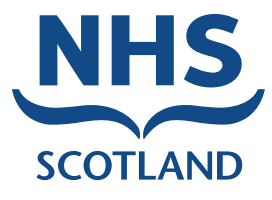Challenge
In October 2016, NHS North Leeds CCG faced a critical system pressure within Leeds Teaching Hospitals Trust’s (LTHT) Emergency Departments (EDs), which together handle over 225,000 annual attendances across three sites: St James’s University Hospital (SJUH), Leeds General Infirmary (LGI) Adults, and LGI Paediatrics. The EDs were under intense strain, and the system was on "black alert"; a call for urgent, coordinated support.
With a history of leading patient education-based urgent and primary care, OneMedicare was approached directly by the CCG’s Accountable Officer to provide immediate help. Patients with primary care needs were attending EDs in high numbers, contributing to overcrowding and inefficiencies, and the existing system was struggling to respond.
Solution
OneMedicare, a Leeds-based, family-owned independent provider, quickly responded to the call. Within just one week, a pilot service was mobilised to embed a GP and Patient Advisor within the EDs for 12 hours a day, 365 days a year. This marked a bold and pioneering move; substantially pre-dating national A&E front-end streaming directives.
A collaborative Standard Operating Procedure (SOP) was developed between OneMedicare and LTHT. The pilot introduced a new way of working, focused on patient education and directing individuals to the most appropriate care provider which improved outcomes and relieved system pressure.
A strong operational relationship between OneMedicare and LTHT ED teams developed rapidly. OneMedicare’s Urgent Care Lead was on-site daily, working alongside ED clinicians, shaping a safe and adaptive primary care streaming process that complemented emergency care.
Outcome
Significant System Impact:
Over 21,000 patients per year, around 10% of total ED volume, are now safely redirected from ED to primary care services, resulting in improved patient journeys and a more sustainable system.
Reduced Re-attendance:
Re-attendance rates dropped to under 3%, outperforming the national average of 5%, reflecting the success of helping patients access the right care the first time.
Recognition and Regulation:
The Co-Located Primary Care (CLPC) services at all three EDs were among the first to be rated ‘Good’ by the CQC, with particular commendation for joined-up working and patient outcomes.
Catalyst for System-Wide Collaboration:
The model’s success inspired the creation of the Leeds Provider Alliance in 2017, bringing together key system partners including Leeds GP Confederation, Leeds Community Healthcare Trust, Local Care Direct (OOH), and the third sector to develop joint services and workforce strategies.
Spreading Innovation:
The approach is now being replicated in other geographies, with pilots underway, such as one at Sheffield Teaching Hospitals Trust, based on OneMedicare’s co-location model.
Next Steps
Further Workforce Integration:
Plans are underway to incorporate Advanced Clinical Practitioners (ACPs) into the co-located model, expanding the scope and capability of primary care within ED.
Continued Joint Learning:
Ongoing joint training and cross-organisational working will continue to evolve, ensuring the workforce is agile, skilled, and united in delivering the best care.
Model Evolution and Replication:
OneMedicare is supporting additional Trusts and providers to adopt similar models, helping spread this successful patient education-led approach nationally.
Sustained Focus on Value and Outcomes:
The service will continue to develop, ensuring it provides high-quality, value-for-money care for the Leeds system, ensuring every patient gets the right care, from the right caregiver, at the right time.





